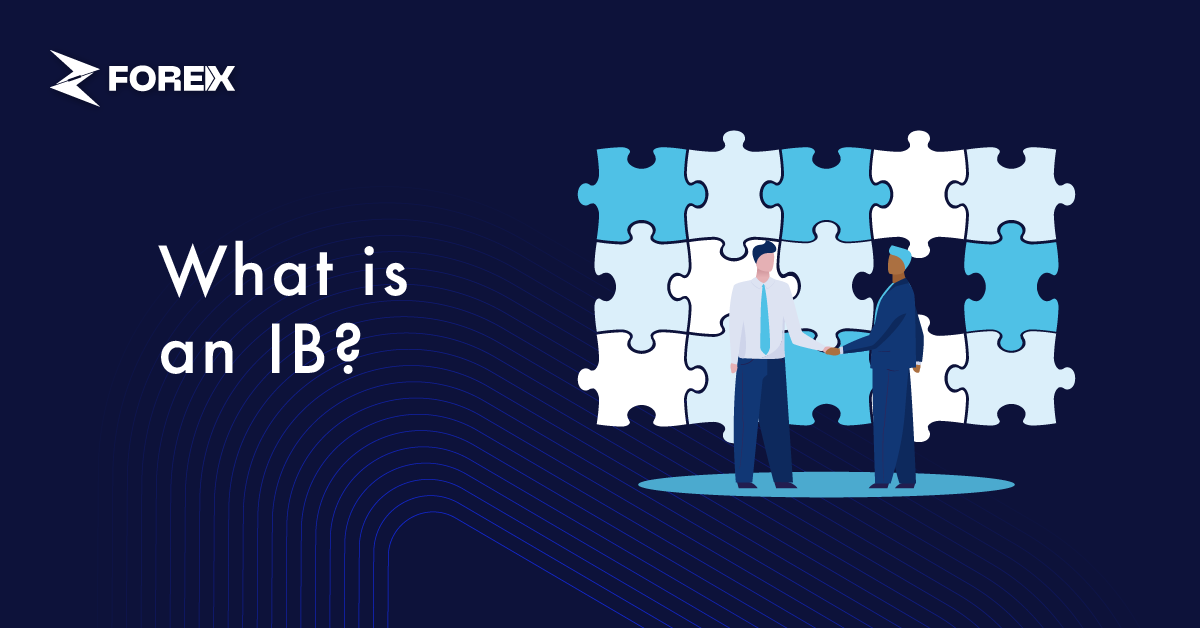
An IB (Introducing Broker) is an essential role in the financial markets, especially in forex. An IB is a professional adviser who acts as an intermediary between traders and brokers. They help both sides in trading by providing services and facilitating the trading experience.
IBs help traders navigate the complexities of the forex market. Their role does not only consist of connecting traders and brokers, it is beyond that. IBs are critical in teaching and helping customers, making them an essential component of the trading ecosystem.
Unlike full-service brokers, IBs do not handle the actual execution of trades but focus on building relationships and bringing new clients to the broker. They earn a commission based on the trading activity of the clients they introduce.
IBs can also offer additional services such as:
One of the primary responsibilities of an IB is to attract new clients to the brokerage by leveraging their expertise, network, and marketing strategies. This often involves conducting market research, creating promotional content, and organizing events or webinars to educate potential clients about trading opportunities.
After finding new clients, IBs provide continuous support, which includes helping them navigate trading platforms, offering market analysis, and sharing trading insights. They can also assist clients in building trading strategies according to their goals and risk tolerance. Furthermore, IBs play an important role in maintaining contact between the broker and the clients, ensuring that any difficulties or complaints are addressed quickly.
By acting as a trusted intermediary, IBs help build and sustain strong, long-term relationships between the brokerage and its clients, contributing significantly to the broker's growth and reputation in the market.
In the forex market, IBs are a key part of building the connection between brokers and traders. They leverage their networks and market knowledge to attract traders who are eager to engage in currency trading. Their knowledge extends beyond just the basics. IBs are highly aware of the insights into market trends, strategies, and the nuances of different currency pairs.
With such expertise, IBs can guide traders effectively and help them make easier decisions when trading. It is a favor for traders to work with IBs since they can partner up for trading with better strategies.
Beyond the forex market, IBs often extend their services to other financial markets, such as commodities, indices, and stocks. In these markets, they introduce clients to a variety of trading instruments, helping them to explore and diversify their investment portfolios.
Anyone from individual traders to large financial institutions can work with Introducing Brokers (IBs). Individual traders, particularly those new to the Forex market, benefit from the guidance and personalized support that IBs offer.
Small and medium-sized businesses can also benefit from working with IBs. If they aim to increase profits by trading, it is for the advantage of businesses to work with these brokers. Even experienced traders and large institutions collaborate with IBs to improve their trading strategies.
IBs act as an intermediary between traders and brokers. They offer market insights, personalized support, and help clients trade in a much simpler atmosphere. Since they are experts on the market and trading, they can be helpful to both sides.
Their existence is important since they keep the business going constantly. From individual traders to large institutions, everyone can benefit from these brokers. Working with an IB comes with many advantages and it is a valuable asset to achieve one's trading goals.
How do IBs make money?
They earn commissions or fees based on the trading volume or activity of the clients they introduce to the broker.
What is the difference between an introducing broker and an executive broker?
An introducing broker refers clients to a broker and does not execute trades, while an executive broker is involved in executing trades for clients.
Who can become an IB?
Anyone with a strong network in the trading community and knowledge of financial markets can become an IB.
How to become an IB
To become an IB, you typically need to partner with a broker, meet their requirements, and start referring clients to earn commissions.
What skills are important for an IB?
Strong communication, networking abilities, and in-depth knowledge of the financial markets are essential for an IB.
Can an IB work with multiple brokers?
Yes, they can work with multiple brokers, but it's important to check the terms and conditions of each broker regarding such arrangements.
 Silver Rally Ahead? Supply Deficit Meets Rising Demand
Silver Rally Ahead? Supply Deficit Meets Rising Demand
A new silver rally may be forming as supply deficits deepen and China’s demand grows. Here’s what is driving the momentum.
Detail Fed Rate Cuts 2026: How to Position Now
Fed Rate Cuts 2026: How to Position Now
Fed rate cuts in 2026 could reshape markets. See expectations, asset impact, and positioning strategies for bonds, gold, stocks, and USD.
Detail Analyzing the U.S. Labor Market Outlook for 2026
Analyzing the U.S. Labor Market Outlook for 2026
Year’s first jobs report looked reassuring. A closer breakdown, however, tells a more layered story about the direction of the labor market.
DetailThen Join Our Telegram Channel and Subscribe Our Trading Signals Newsletter for Free!
Join Us On Telegram!